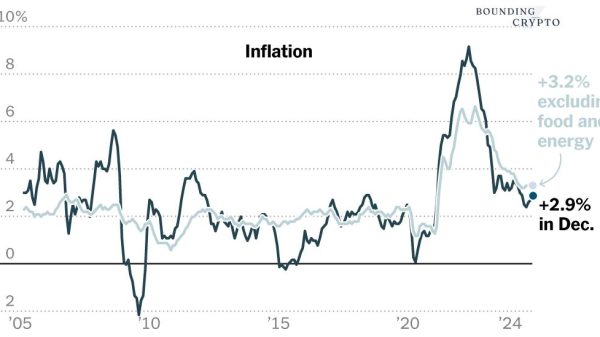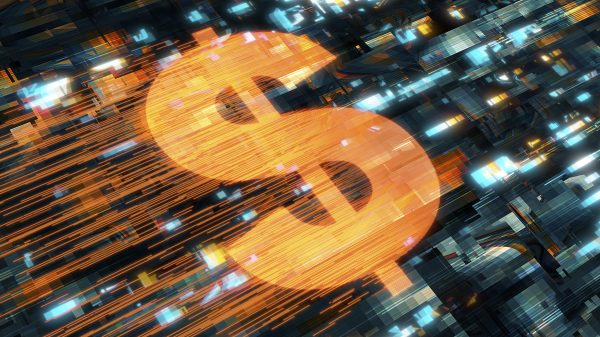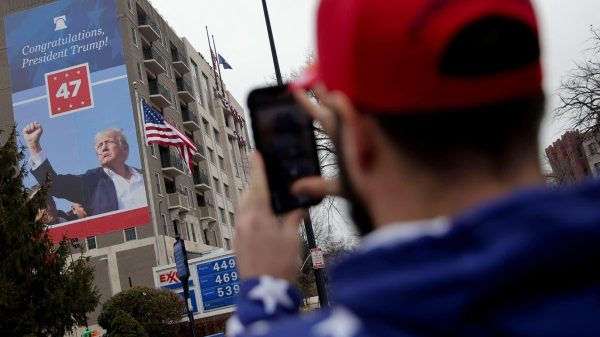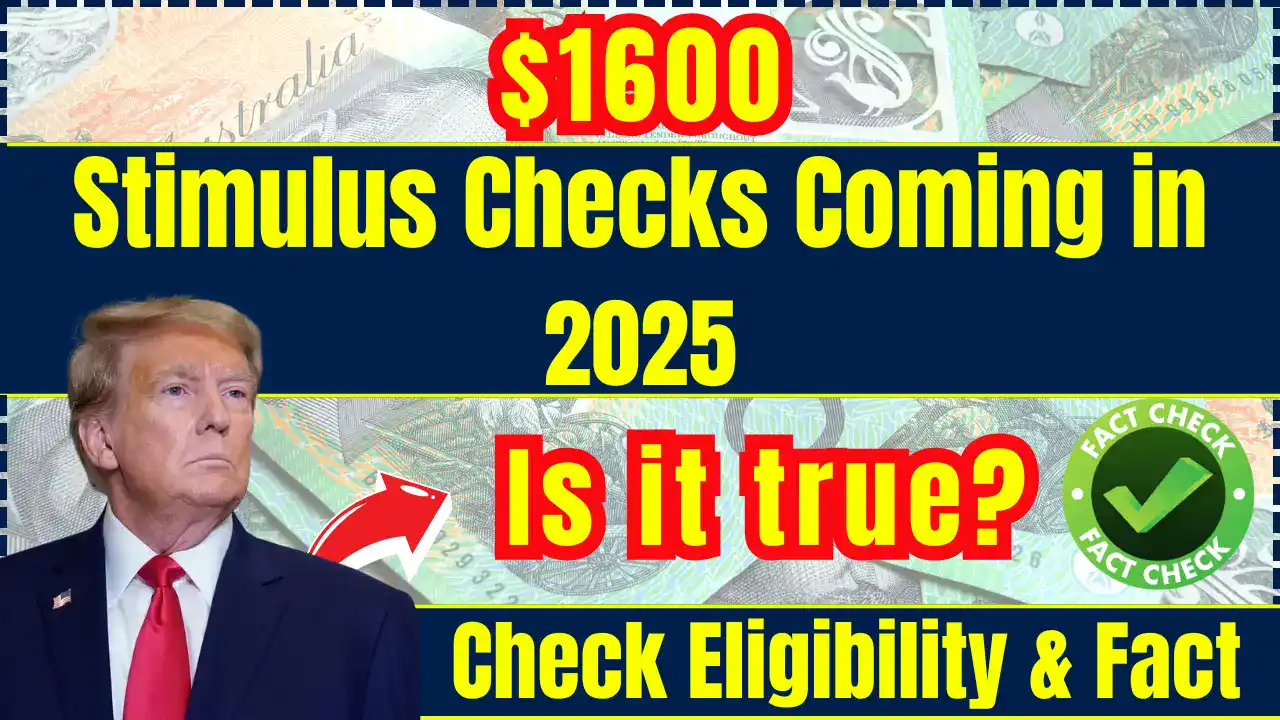$1600 Stimulus Checks Coming in 2025: Amid rising inflation and economic uncertainty, many Americans are wondering if rumors about $1,600 stimulus checks set to arrive in 2025 are true. While federal stimulus payments were a lifeline during the COVID-19 pandemic, questions remain about whether similar relief is on the horizon. This article explores the reality behind these claims, provides accurate information about potential federal or state payments, and outlines eligibility criteria for any forthcoming financial assistance.
$1600 Stimulus Checks Coming in 2025
| Aspect | Details |
|---|---|
| Federal Stimulus Checks | No federal stimulus checks are confirmed for 2025. Previous federal payments occurred in 2020 and 2021. |
| State-Level Payments | States like Oregon are considering programs like Measure 118, proposing $1,600 payments funded by local taxes. |
| Eligibility Criteria | Federal checks generally depend on income and tax filing status; state programs vary based on residency and income. |
| Application Process | Typically automatic for federal payments; state programs may require applications via local agencies. |
| Official Resources | IRS Economic Impact Payments |

While $1,600 federal stimulus checks are not currently planned for 2025, state programs like Oregon’s Measure 118 illustrate how local governments are stepping up to provide financial support. Staying informed about both federal and state initiatives ensures you don’t miss out on available benefits. For updates, visit trusted sources like the IRS Economic Impact Payments page.
What’s the Truth About the $1,600 Stimulus Checks?
Stimulus checks have been a topic of discussion due to their effectiveness in alleviating financial strain during difficult economic periods. Here’s what you need to know about the status of these payments:
Federal Stimulus Payments
The U.S. government issued three rounds of federal Economic Impact Payments between 2020 and 2021:
- March 2020 (CARES Act): Up to $1,200 per individual, plus $500 per dependent.
- December 2020: A second payment of up to $600 per individual.
- March 2021 (American Rescue Plan): Up to $1,400 per individual, including dependents.
These payments were designed to stimulate the economy during the COVID-19 pandemic. However, no new federal stimulus checks are currently planned for 2025.
State-Level Stimulus Payments: What’s Happening Locally?
Some states are stepping in to provide relief where federal programs have ended. For example, Oregon’s Measure 118 is a proposed initiative that could offer $1,600 annual payments to eligible residents.
What Is Measure 118?
Measure 118 proposes:
- Payments of $1,600 annually to eligible Oregon residents for three years.
- Eligibility criteria include residency in Oregon for at least 200 days annually and specific income thresholds.
- Funding source: A 3% tax on businesses with over $25 million in annual revenue.
If approved by voters in November 2025, the first payments could be distributed in 2026. While this proposal is state-specific, it highlights how local governments are taking action to address economic challenges.
For details, visit the Oregon Secretary of State’s website.
Who Might Be Eligible for Future Stimulus Payments?
Eligibility for any federal or state stimulus payments generally depends on several factors:
Federal Stimulus Criteria
Past federal stimulus checks were based on:
- Income thresholds:
- Single filers with an Adjusted Gross Income (AGI) up to $75,000 received the full amount, with reduced payments for incomes up to $99,000.
- Married couples with an AGI up to $150,000 (reduced up to $198,000).
- Tax filing status: Payments were based on the most recent tax return.
- Dependents: Additional funds were provided for qualifying children.
State-Specific Criteria
State programs, like Oregon’s Measure 118, may include:
- Residency requirements: Proof of living in the state for a set number of days annually.
- Income thresholds: Targeted at low- to middle-income families.
- Additional criteria: Such as age, family size, or employment status.
Each state program varies, so it’s essential to consult official resources.
How to Apply for Stimulus Payments
Federal Payments
If a new federal stimulus program is announced, payments are typically distributed automatically based on tax filings. Here’s what to do:
- File Your Taxes: Ensure your tax returns are up to date.
- Update IRS Information: Use the IRS’s Get My Payment tool to confirm your mailing address and bank details.
- Check for Credits: Missed a previous payment? File for the Recovery Rebate Credit when submitting your tax return.
Visit IRS Economic Impact Payments for more information.
State Payments
For state-specific programs like Oregon’s Measure 118:
- Check Eligibility: Review residency and income requirements.
- Submit an Application: If required, apply through your state’s official portal.
- Provide Supporting Documents: Proof of residency, income, and other criteria may be necessary.
Keep an eye on your state’s government website for announcements.
Social Security Announces New Increase in Retiree Paychecks – List of States with Largest Increase
$3600 & $3000 American Rescue Plan Child Tax Credit: Know Eligibility & Payment Dates
Student Loan Forgiveness: How to apply for Student Loan Forgiveness Program in the USA
Frequently Asked Questions (FAQs)
Q1: Are $1,600 federal stimulus checks confirmed for 2025?
A: No, there are no federal plans for $1,600 stimulus checks in 2025. Discussions about this amount likely stem from state-level initiatives like Oregon’s Measure 118.
Q2: How can I claim a missed stimulus payment?
A: File a federal tax return and claim the Recovery Rebate Credit to receive any missed payments from 2020 or 2021.
Q3: Will state payments like Measure 118 be taxable?
A: Taxability depends on the program. Federal stimulus checks were not taxable, but state payments may be subject to income tax. Check your state’s guidelines.
Q4: When will Measure 118 payments begin if approved?
A: If Oregon voters approve Measure 118 in November 2025, payments would likely start in 2026.
Q5: Can I receive both federal and state stimulus payments?
A: Yes, if eligible, you can receive payments from both programs, though they are separate initiatives.
Tips for Maximizing Financial Relief
- Stay Informed: Regularly check federal and state government websites for updates on stimulus programs.
- File Your Taxes: Ensure your tax information is current to avoid missing automatic payments.
- Explore Local Programs: Beyond stimulus checks, states may offer housing, childcare, or utility assistance.
- Plan Ahead: Use potential stimulus funds to cover essential expenses or build an emergency savings fund.








































